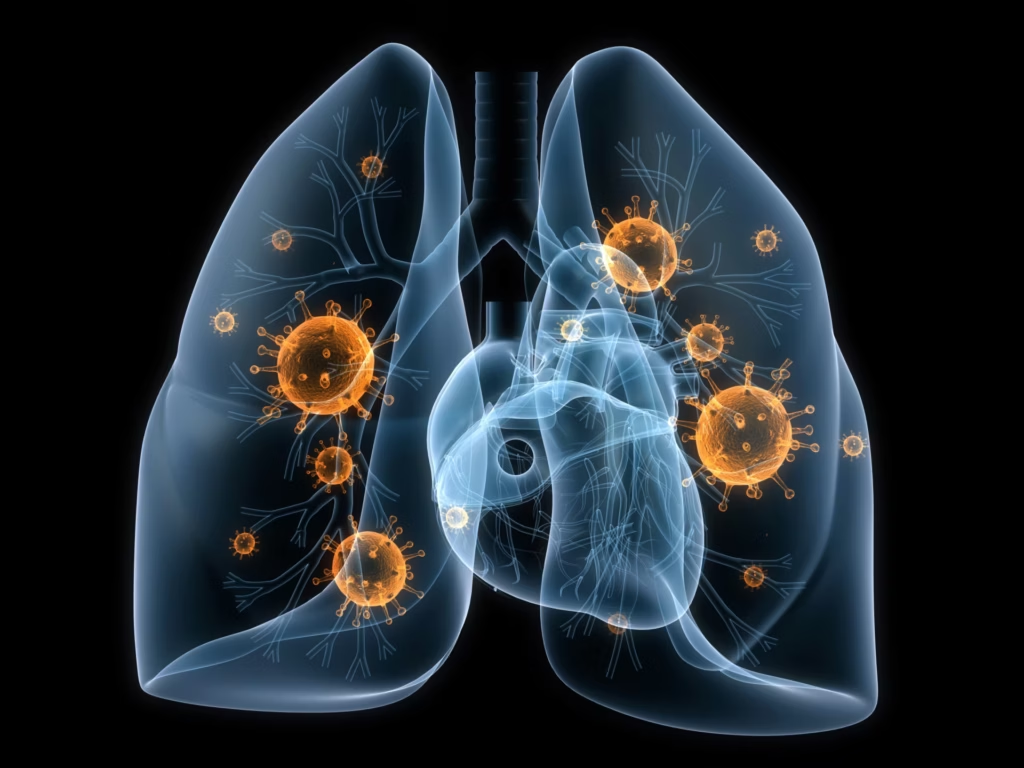touchLearning Activities
Education, Conference Coverage and Articles

In this episode, we speak with leading paediatric allergist Prof. Helen Brough to explore the key factors behind why some children develop allergies to foods such as peanuts, and what we can do to help prevent them. We also examine the latest developments in managing food allergies and the innovations on the horizon that could transform how we treat them.

The GINA 2025 strategy report introduces a more personalised, age-specific, and proactive approach to asthma care. Key updates include the shift away from SABA monotherapy, expanded use of biomarkers for treatment guidance, and increased emphasis on environmental factors like climate change. The guidelines highlight shared decision-making, routine monitoring, and tailored treatment plans, aiming to reduce exacerbations and improve outcomes across all age groups.

Harnessing Proteomics to Transform Tuberculosis Diagnostics: a Q&A with Future Leader, Hannah Schiff
In this Future Leaders interview, Dr Hannah Schiff shares how proteomics is revolutionising tuberculosis diagnostics by identifying new, accessible biomarkers. She reflects on her journey from infectious disease research to respiratory medicine, and how large dataset analysis is revealing deeper insights into TB biology. Dr Schiff also offers practical advice on managing clinical-academic balance and encourages early-career doctors to stay curious and open to research opportunities.

In this Future Leaders interview, Dr Alexander Mathioudakis discusses his pioneering work in precision medicine for airway diseases, with a focus on COPD. He explains how his research is uncovering novel biomarkers, like eosinophil trajectories, to guide treatment decisions and improve outcomes. Dr Mathioudakis also shares insights on balancing innovation with evidence-based practice and offers valuable advice for early-career clinicians pursuing academic careers in respiratory medicine.

GREAT-2 was a phase II, placebo-controlled trial evaluating gremubamab, a bispecific monoclonal antibody, for chronic Pseudomonas aeruginosa infection in bronchiectasis. As part of our ATS 2025 coverage, Dr Merete Long discusses how this targeted therapy disrupts the vicious cycle of infection and inflammation, trial outcomes including significant bacterial load reduction and improved quality of life, and the broader implications for future treatment strategies.

Explore expert perspectives from ATS 2025 with our exclusive interview series. Discover key advances in respiratory care, including updates on COPD, ILD, ventilation strategies, and emerging therapies. Stay informed with concise, clinically relevant insights tailored for healthcare professionals on touchRESPIRATORY.

In this Q&A, Professors David Price and David Halpin discuss their ATS 2025 abstract on improving COPD outcomes through a digital adherence support package. They explore the MAGNIFY trial's design, including how an EMR-driven algorithm identified high-risk patients and how a pharmacist-led intervention combined with a digital inhaler device significantly reduced treatment failure in a real-world primary care setting.

In this EAACI 2025 interview, Dr Remi Gagnon discusses his presentation on the TT-06 phase III trial. This was the first trial to investigate the SQ tree sublingual immunotherapy (SLIT) tablet in children aged 5–17 with tree pollen-induced allergic rhinitis and/or conjunctivitis.
This interview explores the impact of seasonal allergies on quality of life and the background, design, and findings from the study.

As part of our EAACI 2025 coverage, we spoke with Dr Eugenio De Corso (Catholic University of the Sacred Heart, Milan) around the EVEREST trial, a phase 4 head-to-head study comparing dupilumab and omalizumab in patients with severe CRSwNP and coexisting asthma. Dr De Corso explores the study’s methodology, key findings, and implications for clinical practice in managing this challenging patient population.

RT234 is a novel investigational therapy combining inhaled dry powder vardenafil with a proprietary oscillating inhaler, designed for rapid, on-demand relief of breathlessness in patients with pulmonary arterial hypertension (PAH). In a phase 2b CPET study, RT234 demonstrated dose-dependent improvements in peak VO₂ and dyspnea.
As part of our ATS 2025 coverage, Dr Raymond Benza discusses these findings, current treatment limitations, and the next steps toward a phase III clinical trial.

Ventilator-associated pneumonia (VAP) poses a serious threat in ICUs, often driven by biofilms on endotracheal tubes that resist antibiotics.
In this Q&A, Professor Frank MP van Haren discusses a study showing that nebulized BromAc® effectively disrupts these biofilms and enhances antibiotic action, offering a promising strategy against persistent infections like Pseudomonas aeruginosa-related VAP.

Physician burnout is at a critical point. In this episode, Nicky speaks with Dr Alfred Atanda about why so many physicians are burning out and what can be done to change the trend. From personal experience to system-wide solutions, Dr Atanda shares valuable insights on improving physician well-being and building a more effective healthcare culture.

In this Future Leaders interview, we speak with Dr Kaylee Worlock, post-doctoral research fellow at UCL and winner of the 2025 Rising Stars award at the 7th Forum on RTIs. Dr Worlock shares her journey into respiratory science, her pioneering work in developmental biology, and her vision for the future of translational research.

Future Leader, Dr Michelle Korah-Sedgwick discusses her innovative work at the intersection of immunology and respiratory care, focusing on uncovering immune deficiencies in chronic lung disease. She shares insights on personalized treatment approaches, the value of clinical vigilance, and how registries are transforming care for patients with complex respiratory conditions.

In this interview, Dr Mural Quadros (St John’s University, New York, USA) discusses her presentation from the ATS International Conference in San Francisco, on a preclinical study evaluating inhaled osimertinib for malignant pleural mesothelioma (MPM). The research highlights the use of PLGA nanoparticles to deliver the drug directly to the lungs, offering a non-invasive, targeted alternative to current treatment options.

In this episode, we explore the future of continuing medical education (CME) with the team behind touchIME. Hannah Fisher and Matthew Goodwin share insights into global and US trends, the importance of patient inclusivity and how educational outcomes are evolving to better measure the direct impact of learning on clinical practice and patient care.

 touchRESPIRATORY
touchRESPIRATORY
Register Now!
Explore the latest in medical education and stay current in your field. Create a free account to track your learning.
- Save your progress for video
- Keep track of your CME credits
- Add personalised learning notes
- Receive updates from course leaders and faculty
- Be the first to hear about new and exciting interactive learning opportunities
Latest articles videos and clinical updates - straight to your inbox
Log into your Touch Account
Earn and track your CME credits on the go, save articles for later, and follow the latest congress coverage.
Register now for FREE Access
Register for free to hear about the latest expert-led education, peer-reviewed articles, conference highlights, and innovative CME activities.
Sign up with an Email
Or use a Social Account.
This Functionality is for
Members Only
Explore the latest in medical education and stay current in your field. Create a free account to track your learning.


